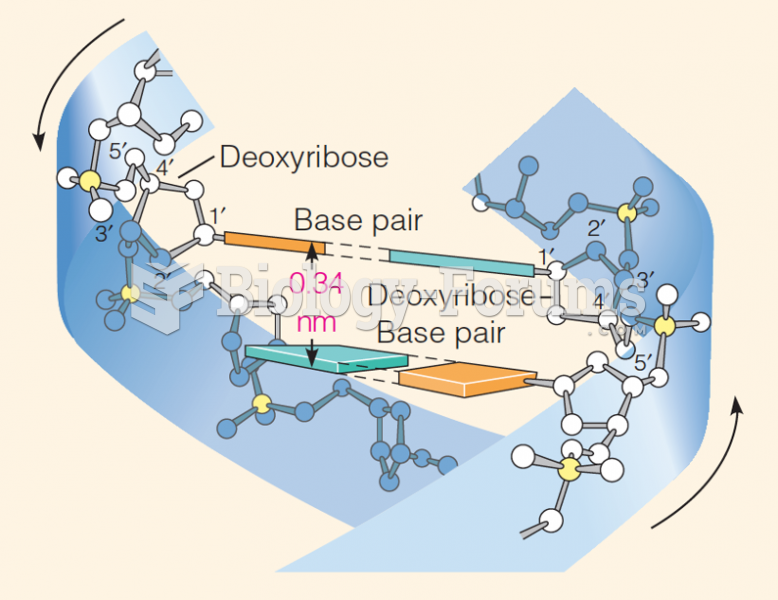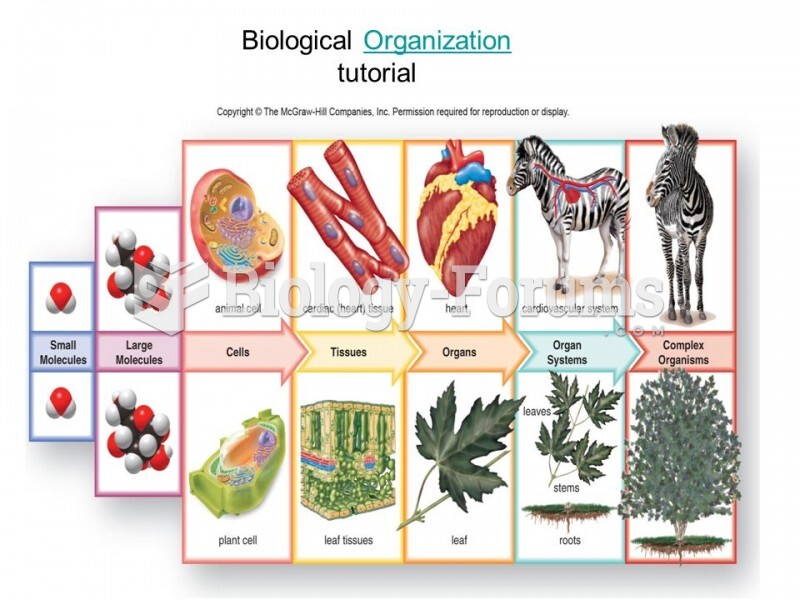|
|
|
Drying your hands with a paper towel will reduce the bacterial count on your hands by 45–60%.
The heart is located in the center of the chest, with part of it tipped slightly so that it taps against the left side of the chest.
Egg cells are about the size of a grain of sand. They are formed inside of a female's ovaries before she is even born.
Most strokes are caused when blood clots move to a blood vessel in the brain and block blood flow to that area. Thrombolytic therapy can be used to dissolve the clot quickly. If given within 3 hours of the first stroke symptoms, this therapy can help limit stroke damage and disability.
Hippocrates noted that blood separates into four differently colored liquids when removed from the body and examined: a pure red liquid mixed with white liquid material with a yellow-colored froth at the top and a black substance that settles underneath; he named these the four humors (for blood, phlegm, yellow bile, and black bile).







